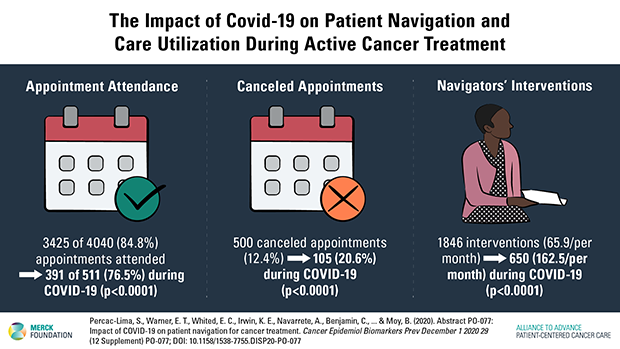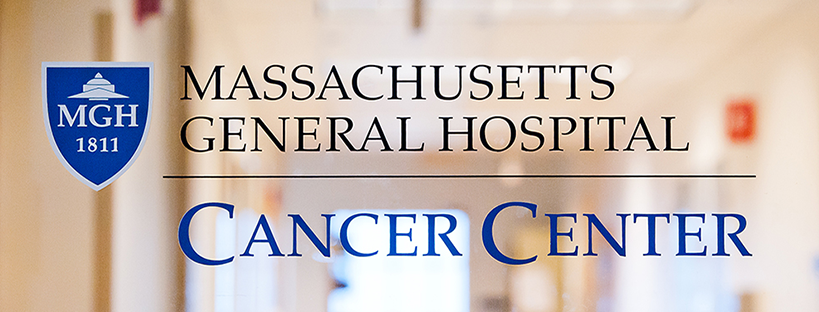Patient navigation has always been an essential intervention to improve access to care for vulnerable and underserved patient populations. New data from the Massachusetts General Hospital Cancer Center shows that navigation is also a promising approach to ensure continuity of care during the COVID-19 pandemic.

Patient Navigation, developed by Harold P. Freeman, MD in 1990 to improve care for black women with breast cancer, is a term that refers to the work of patient navigators, community health workers, and nurses, who help people with cancer navigate the complexities of cancer care. From booking appointments, to explaining treatment options, to connecting vulnerable patients with psychological and material assistance, navigators are involved throughout the continuum of care. Cancer treatment can span months or even years and requires multiple in-person medical visits. As a result, the pandemic has made access to care more challenging, especially for the marginalized populations that are being disproportionately affected.
Researchers from the MGH Cancer Center, led by Associate Professor Sanja Percac-Lima, MD, first noticed this concerning trend when they analyzed data from their own navigation intervention, which began enrolling patients in 2017 with support from the Merck Foundation. Once the pandemic took hold in Massachusetts, the team quickly reworked the program, with navigators offering the majority of support over the phone and online. Both before and during the pandemic, most of the populations served tended to reside in the city of Chelsea, Massachusetts, one of the hardest hit pandemic hot spots in the state. Massachusetts Department of Public Health data from June of 2020 shows a COVID-19 positivity rate as high as 35%. As of February 2021, estimates place the total number of COVID cases in the city at about 7,500, against a total population of approximately 39,000 people.
Given these alarming statistics, the team at the MGH Cancer Center set out to explore the impact of COVID-19 on patient navigation and care utilization during active cancer treatment. The data collected represents two distinct time frames: before Massachusetts’ first COVID-19 outbreak (November 2017 – February 2020) and during the pandemic (March – June 2020). Results show that, although patient navigators could not provide in-person assistance during the pandemic, they performed substantially more interventions. Whereas patient navigators were performing approximately 65 interventions per month before the pandemic, the number increased to approximately 162 during the pandemic. This finding, combined with the fact that there was no change in the rate of missed appointments before and during the pandemic (2.9%), suggests that patient navigation services are an effective strategy to support underserved communities at the epicenter of COVID-19 outbreaks.
Patient navigation has been consistently shown to improve access to cancer care in underserved populations. The findings from the Massachusetts General Cancer Center show that navigation is also an integral tool during a public health crisis, particularly at a time when patients may be especially hesitant to attend screenings and follow-up appointments, or may encounter additional barriers to care. To advance health equity, health care providers should consider integrating patient navigation services into routine care.
For more information: Percac-Lima, S., Warner, E. T., Whited, E. C., Irwin, K. E., Navarrete, A., Benjamin, C., … & Moy, B. (2020 Oct 2-4). Impact of COVID-19 on patient navigation for cancer treatment [Abstract]. In Proceedings of the AACR Virtual Conference: Thirteenth AACR Conference on the Science of Cancer Health Disparities in Racial/Ethnic Minorities and the Medically Underserved. Philadelphia (PA): Cancer Epidemiol Biomarkers Prev December 1 2020 (29) (12 Supplement) PO-077; DOI: 10.1158/1538-7755.DISP20-PO-077
